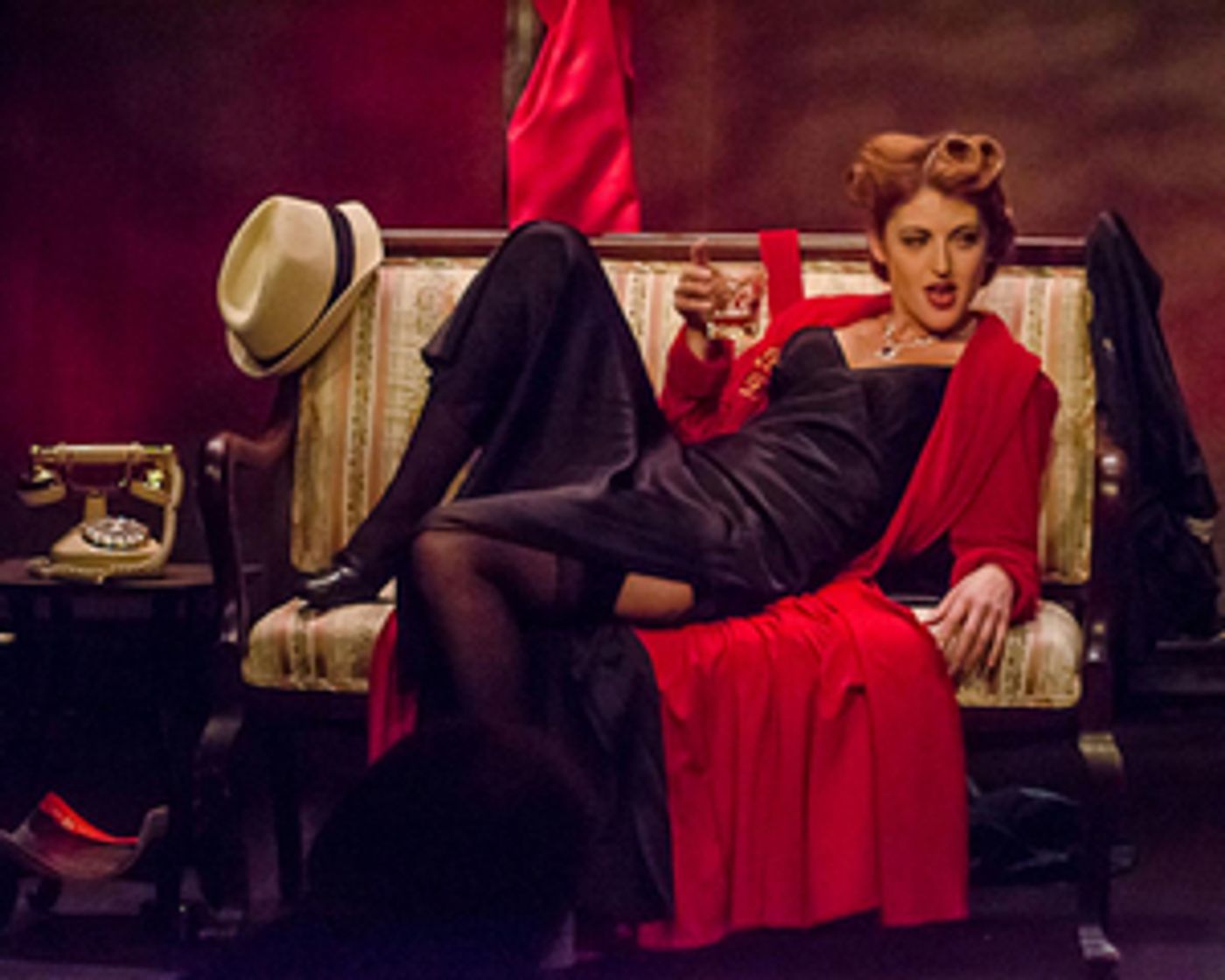BWW Review: BETTE DAVIS AIN'T FOR SISSIES At 3Below Theater Is A Compelling Portrait Of The Great Stage And Film Legend And Early Feminist

Bette Davis AIN'T FOR SISSIES
Written and Performed by Jessica Sherr
Directed by Robert Perillo
3 Below Theater
The multi-talented writer and actor Jessica Sherr brought her one-act solo show to 3Below after a successful premiere at the Edinburgh Fringe Festival and a 4-week run in Chicago. Bette Davis Ain't for Sissies is a thoughtful, well-researched look into the mind of one of Hollywood's great film stars, two-time Oscar winner Bette Davis. Sherr is careful not to display the typical Davis caricature of the bold, over-exaggerated speech, cigarette wielding bitch of a Charles Pierce. Instead we see a fully fleshed woman assured of her immense talent but pitted against a male dominated studio system that treated its star like chattel. It's a nuanced performance that is at times enlightening, infuriating, bittersweet and sad.
The scene begins the night before the 1939 Oscar awards where, as has been leaked by the press, Davis will lose Best Actress to Vivien Leigh's Scarlet O'Hara, a role she had hope to play. From that moment, when the to-time Oscar winner loses, we see Ms. Davis' insecurities surface and begin to eat away at her self-assurance and confidence. The script throws in plenty of vintage Hollywood star morsels; her friendship with Olivia de Havilland and Humphrey Bogart, stories about her love affair with director William Wyler and gentle digs on Hattie McDaniel and Judy Garland.
A determined, hardworking Yankee woman, Davis never did reconcile her 18-hour work ethic with her love life, failing at four marriages and engendering a bitter relationship with daughter BD, who would go on to write two damaging tell-all of life with Bette. Abortions, guilt and anger are expressed including her groundbreaking court case with Warner Brothers pictures over what she considered to be 'indentured servitude'. Davis lost the case, and returned to Hollywood tail tucked, in debt and without income, to resume her career. Olivia de Havilland mounted a similar case in 1943 and won.
Great highs, like her outstanding Oscar nominated performance in 1950's All About Eve, are counter-balanced by extreme lows (the death of husband Arthur Farnsworth and her beloved mother Ruthie). Sherr, who bears some resemblance to a young Davis, is free to create her own imagining of Davis. As there are few people living who knew Davis (De Havilland, age 103, being an exception), Sherr's Davis is compellingly real and fully fleshed.
After Davis' great success with 1962's grand guignol What Ever Happened to Baby Jane?, she was quoted as saying "Old age is no place for sissies. Old age may have been the current metaphor, but Bette Davis wasn't for sissies throughout her entire illustrious career; from her breakout role in 1929's The Wild Duck on stage to her six-decade film career. Kudos to Jessica Sherr for presenting an enlightening portrait of a trailblazing feminist who is indelibly etched upon our collective mind.
Reader Reviews
Videos

